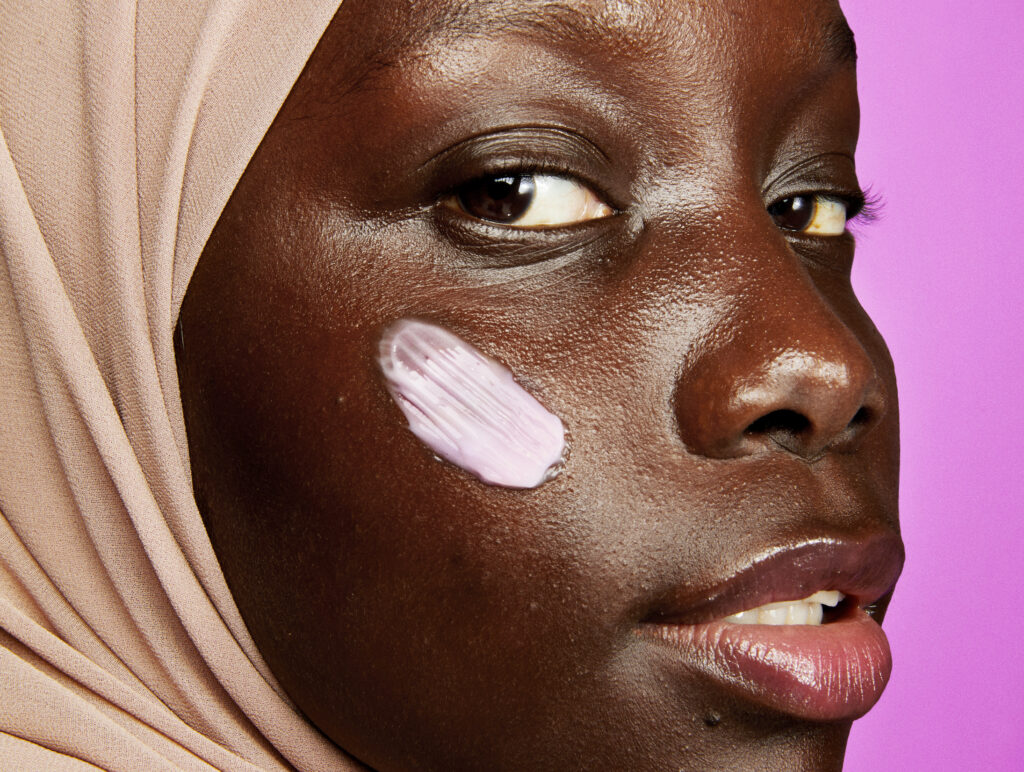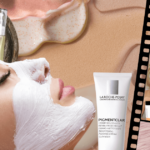
Skin is complicated — understatement of the century. Between skin-care routine, what you ate for lunch, and where you live, it can be hard to parse what’s really driving skin issues like dry patches, hormonal breakouts, or dark spots that just won’t quit.
But understanding the difference between skin types versus skin concerns can help you make a little more sense of it. The two are very separate things that can have an impact on your overall skin health, so knowing how to care for them both on a regular basis can get you that much closer to a daily glow. With that, here’s how they differ — and what you can do to bring both into balance.

What determines your skin type?
For starters, “skin type is simply the characteristics of your skin, such as your skin color and how your skin looks and reacts to various products and treatments,” says Michele Green, M.D., cosmetic dermatologist in New York City. “In the dermatology world, skin type is not only identified by the five categories such as oily, normal, et cetera, but also includes your ‘skin type’ on the Fitzpatrick scale such as types 1 through 6.”
Think of it as your baseline. Your skin type is largely dictated by your genetics — for instance, you may just be genetically predisposed to produce more oil, oily and dry depending on the area of your face, or your skin barrier is genetically weaker than it should be (see: sensitive skin). Ultimately, “understanding your skin type is very important — as is knowing what products to use, how your skin will react, and also what treatments are best for your skin type in order to get the best results without causing any harm to your skin,” says Dr. Green.
What are skin conditions?
Consider your skin concerns an added layer to your skin type — it’s a matter of both, not either. “The most common skin concerns are acne, rosacea, wrinkles, enlarged pores, acne scars, and eczema,” says Dr. Green. While some skin types can predispose you to certain skin concerns, such as oily skin for acne and dry skin for eczema, skin concerns tend to be fair game for everyone.
For example, it’s entirely possible to have dry skin and hormonal breakouts at the same time. However, if you’re still piling on products designed only to address dryness (in this hypothetical, at least) that can make skin concerns worse — which is why it’s essential to find a balance between the two. When you’re dealing with skin concerns, it’s important to take your skin type into consideration to put a game plan together.
What’s the difference?
Since your skin type is predetermined by your genes, you can’t do much to change it — nor should you. Skin concerns, on the other hand, can vary based on things like the weather and what you ate. A great example of the difference between skin type and skin concern is sensitivity. While sensitive skin is a genetic condition in which your skin barrier is impaired, sensitized skin describes a skin barrier that’s become weakened as a result of harsh products or bad habits, like over-cleansing skin. As a result, sensitive skin is a skin type, while sensitized skin is a skin concern. (Intrigued? We did a deep dive on this topic.)

How to care for both
Skin concerns can encompass the daily (and totally normal) changes in your skin, which is why we always recommend you Take It Day by Day, Skin by Skin™. “There can be multiple contributing factors to many skin concerns,” says Dr. Green. “Environmental factors are not limited to the weather, but also includes diet, skin care products and stress which can all contribute to skin concerns.” Check in with your skin every morning to see how it feels and what it looks like — since it may be trying to tell you something — and use that info to adjust your routine accordingly.
Doing so can go a long way, especially when it comes to caring for your core skin type in addition to concerns. “Most people are correct in analyzing their skin type — however they don’t often use the products best for their skin type and instead use products based upon popularity and ingredients,” says Dr. Green. That’s where we come in. Our products can accommodate a range of skin types and concerns (case in point: our range of moisturizers) and are designed not to irritate or inflame skin. We also recommend building your skincare wardrobe so that you have the right products on-hand for whatever may come your way.
Ultimately, caring for your skin as a whole is a matter of finding balance — and why taking both skin type and skin concern into consideration, it’s that much easier to do so.
Learn more about properly caring for your skin type:











